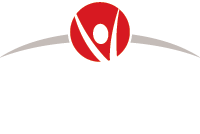Curriculum Review
The aim of a Curriculum Review is to improve our implementation of the Victorian Curriculum F-10 by refining, realigning and reducing the existing content of our teaching and learning programs and units of work throughout the school. Apart from the Assistant Principal (Curriculum Development, Assessment and Reporting) ultimately overseeing all curriculum planning and its delivery, the following actions contribute to a broad, comprehensive curriculum review occurs:
Whole School
- Establishing a school wide strategic focus on implementing measureable achievements and milestones to underpin the ‘Building Practice Excellence’ and Curriculum Planning and Assessment’ dimensions of the FISO 2.0, in our AIP for 2022
- Review of our annual Whole School PLSP Goal Achievement as a percentage measure of learning engagement and student success across each curriculum area
- Align and report upon annual Whole School PLSP Goal Achievement to our school wide student learning goal focus in our AIP by our School Improvement Team to support planning of future implementation in subsequent years
Curriculum Area/Units of Work
- Curriculum Team Leaders ensure that units of work align with the Victorian Curriculum (thus the relevant JSA 3-year Scope and Sequence)
- The Assistant Principal (CDAR) administers a school wide teacher survey seeking explicit feedback relevant to each curriculum area each term to inform the team of any enablers, barriers and suggestions for change.
Sub Schools/Teaching and Learning
- Review of our Sub School PLSP Goal Achievement Scores as a percentage measure of student learning success across each curriculum area
- Sub School Leaders conduct weekly and ongoing collaborative review of our classroom teachers’ broad Teaching and Learning Programs: shared feedback regarding links to the Victorian Curriculum, and both implementation of HITS teaching strategies are applied and suitable Tier 1 Reasonable Adjustments are administered to their students
- Classroom Teams, Sub School Leaders and therapists attend weekly Classroom Team Meetings to review students’ planned reasonable adjustments and learning goal progress across all curriculum areas following an annual cycle.

